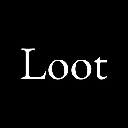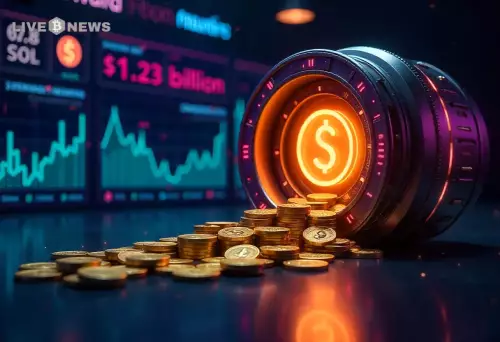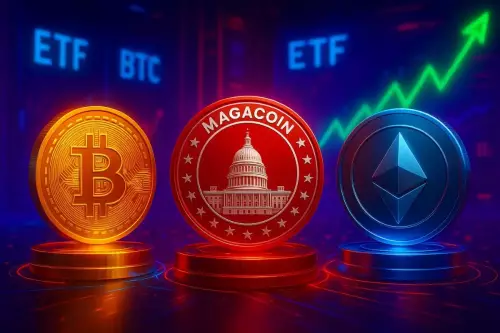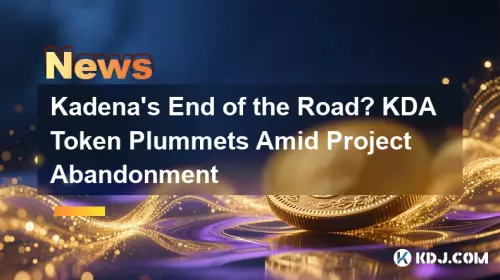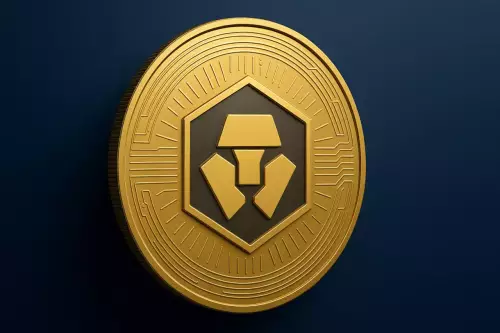 |
|
 |
|
 |
|
 |
|
 |
|
 |
|
 |
|
 |
|
 |
|
 |
|
 |
|
 |
|
 |
|
 |
|
 |
|
Ripple의 CTO인 David Schwartz는 다수의 해시 파워가 "비트코인"의 정의를 결정한다는 개념에 도전합니다. 전통적인 논리에 의문을 제기하면서 Schwartz는 합리적인 사용자가 단순히 지배적인 해시 파워를 따르는 것이 아니라 자신의 이익을 우선시한다고 주장합니다. 그는 사용자의 결정이 가장 긴 체인 규칙에만 기반하지 않은 사례로 비트코인 캐시 하드 포크를 인용합니다. Schwartz의 개입은 비트코인 생태계의 기본 원칙과 해시 파워와 사용자 선택 사이의 관계에 대한 비판적인 의견을 장려합니다.

Ripple CTO David Schwartz's Thought-Provoking Discourse on Hash Power Control in the Bitcoin Network
Ripple CTO David Schwartz의 비트코인 네트워크의 해시 전력 제어에 대한 시사점 있는 담론
In a groundbreaking discourse, Ripple's Chief Technology Officer David Schwartz has ignited a thought-provoking debate on the pivotal role of hash power within the Bitcoin network. Sparked by a series of tweets, Schwartz's incisive insights challenge the long-held notion that the majority of hash power unequivocally determines the rightful owner of the "Bitcoin" moniker.
획기적인 담론에서 Ripple의 최고 기술 책임자인 David Schwartz는 비트코인 네트워크 내에서 해시 파워의 중추적인 역할에 대한 생각을 자극하는 논쟁을 촉발시켰습니다. 일련의 트윗을 통해 촉발된 Schwartz의 예리한 통찰력은 해시 파워의 대부분이 "비트코인"이라는 이름의 정당한 소유자를 명백하게 결정한다는 오랜 개념에 도전합니다.
This discourse stems from a tweet by X user Curtis Ellis, who articulated the prevailing "BTC logic": that the majority of hash power holds the supreme authority to define and control the Bitcoin name, and that users must operate full nodes to align with hash power that adheres to their preferred ruleset.
이 담론은 X 사용자 Curtis Ellis의 트윗에서 비롯되었습니다. 그는 널리 퍼진 "BTC 논리"를 설명했습니다. 해시 파워의 대부분은 비트코인 이름을 정의하고 제어할 수 있는 최고의 권한을 갖고 있으며 사용자는 해시에 맞춰 전체 노드를 운영해야 합니다. 자신이 선호하는 규칙을 고수하는 힘.
To fully grasp the implications of this logic, it is essential to understand the fundamental architecture of the Bitcoin network. Participants, or the computers that maintain and verify the integrity of the blockchain, are known as nodes, primarily categorized as full nodes and miner nodes.
이 논리의 의미를 완전히 이해하려면 비트코인 네트워크의 기본 아키텍처를 이해하는 것이 필수적입니다. 참여자, 즉 블록체인의 무결성을 유지하고 검증하는 컴퓨터를 노드라고 하며, 주로 풀노드와 마이너 노드로 분류됩니다.
Full nodes, as the name suggests, acquire and store a complete copy of the entire blockchain. By meticulously validating every block and transaction against the established network rules, full nodes serve as the gatekeepers of the Bitcoin network's security and integrity.
풀 노드는 이름에서 알 수 있듯이 전체 블록체인의 완전한 사본을 획득하고 저장합니다. 확립된 네트워크 규칙에 따라 모든 블록과 거래를 꼼꼼하게 검증함으로써 전체 노드는 비트코인 네트워크의 보안과 무결성의 문지기 역할을 합니다.
The Bitcoin network's unwavering stability is largely attributed to the Nakamoto consensus mechanism, with the longest chain rule being one of its key pillars. In the event of competing chains vying for legitimacy, the longest chain rule dictates that the chain with the most cumulative computational effort prevails as the official blockchain.
비트코인 네트워크의 흔들리지 않는 안정성은 주로 나카모토 합의 메커니즘에 기인하며, 가장 긴 체인 규칙은 핵심 기둥 중 하나입니다. 합법성을 위해 경쟁하는 체인이 있는 경우, 가장 긴 체인 규칙에 따라 가장 누적된 계산 노력이 있는 체인이 공식 블록체인으로 우세합니다.
Challenging this long-held paradigm, Ripple CTO David Schwartz posits a fundamental question: does the congregation of the majority hash power truly confer the exclusive right to define the essence of "Bitcoin"?
이러한 오랫동안 유지되어 온 패러다임에 도전하면서 Ripple CTO David Schwartz는 근본적인 질문을 제기합니다. 다수의 해시 파워 집단이 실제로 "비트코인"의 본질을 정의할 독점권을 부여합니까?
In his own words, Schwartz eloquently articulates: "Do you think a rational user says I want whatever is called bitcoin, whether it's good or bad, honest or corrupt? The former is how you tell what is bitcoin and the latter is how you get what you actually want."
Schwartz는 자신의 말로 다음과 같이 설득력 있게 설명합니다. "합리적인 사용자가 비트코인이라는 것이 좋든 나쁘든, 정직하든 부패하든 상관없이 내가 비트코인이라고 불리는 것을 원한다고 말할 것이라고 생각하십니까? 전자는 비트코인이 무엇인지 구별하는 방법이고 후자는 비트코인을 얻는 방법입니다. 당신이 실제로 원하는 것이 무엇인지."
Schwartz's thought-provoking query exposes the inherent flaw in the assumption that the majority hash power can arbitrarily dictate the true nature of Bitcoin. He further illustrates this point by referencing the pivotal Bitcoin Cash hard fork from Bitcoin in 2017.
Schwartz의 시사점 있는 질문은 다수의 해시 파워가 비트코인의 진정한 본질을 임의로 결정할 수 있다는 가정에 내재된 결함을 드러냅니다. 그는 2017년 비트코인의 중추적인 비트코인 캐시 하드포크를 언급하여 이 점을 더욱 설명합니다.
"When the BTC/BCH fork happened, rational users didn't say, 'I want whichever side is called 'bitcoin' afterwards.' The rule for how to tell which side is 'bitcoin' doesn't tell users which side they want to be on or get them on the side they want."
"BTC/BCH 포크가 일어났을 때, 합리적인 사용자들은 '나중에는 '비트코인'이라는 쪽이 무엇이든 원한다'고 말하지 않았습니다." 어느 쪽이 '비트코인'인지 식별하는 방법에 대한 규칙은 사용자에게 어느 쪽이 되고 싶은지 알려주지 않거나 원하는 쪽을 얻을 수 있도록 하지 않습니다."
Schwartz's astute observation highlights the fundamental disconnect between the mere technicality of hash power dominance and the multifaceted considerations that influence user preferences. The designation of "Bitcoin" is not simply a matter of technical prowess but rather a complex interplay of various factors, including community consensus, network stability, and the alignment of values with user aspirations.
Schwartz의 기민한 관찰은 해시 전력 지배의 단순한 기술성과 사용자 선호도에 영향을 미치는 다면적인 고려 사항 사이의 근본적인 단절을 강조합니다. "비트코인"이라는 명칭은 단순히 기술적 우수성의 문제가 아니라 커뮤니티 합의, 네트워크 안정성, 가치와 사용자 열망의 일치 등 다양한 요소의 복잡한 상호 작용입니다.
As the discourse unfolds, Ripple CTO David Schwartz's insightful intervention compels the Bitcoin community to critically re-examine the principles that underpin the ecosystem. His challenge to the simplistic notion of hash power supremacy opens the door to deeper discussions on the true meaning of Bitcoin and the criteria that define its legitimacy.
담론이 전개되면서 Ripple CTO David Schwartz의 통찰력 있는 개입으로 인해 비트코인 커뮤니티는 생태계를 뒷받침하는 원칙을 비판적으로 재검토하게 되었습니다. 해시 파워 패권이라는 단순한 개념에 대한 그의 도전은 비트코인의 진정한 의미와 그 합법성을 정의하는 기준에 대한 더 깊은 토론의 문을 열어줍니다.
부인 성명:info@kdj.com
제공된 정보는 거래 조언이 아닙니다. kdj.com은 이 기사에 제공된 정보를 기반으로 이루어진 투자에 대해 어떠한 책임도 지지 않습니다. 암호화폐는 변동성이 매우 높으므로 철저한 조사 후 신중하게 투자하는 것이 좋습니다!
본 웹사이트에 사용된 내용이 귀하의 저작권을 침해한다고 판단되는 경우, 즉시 당사(info@kdj.com)로 연락주시면 즉시 삭제하도록 하겠습니다.


















